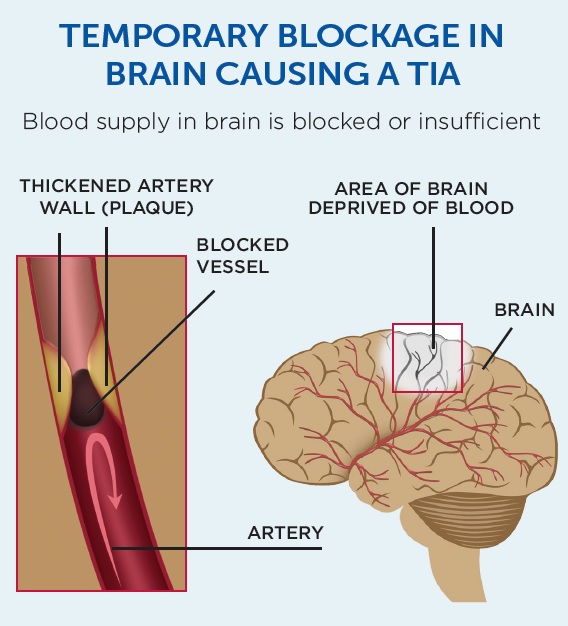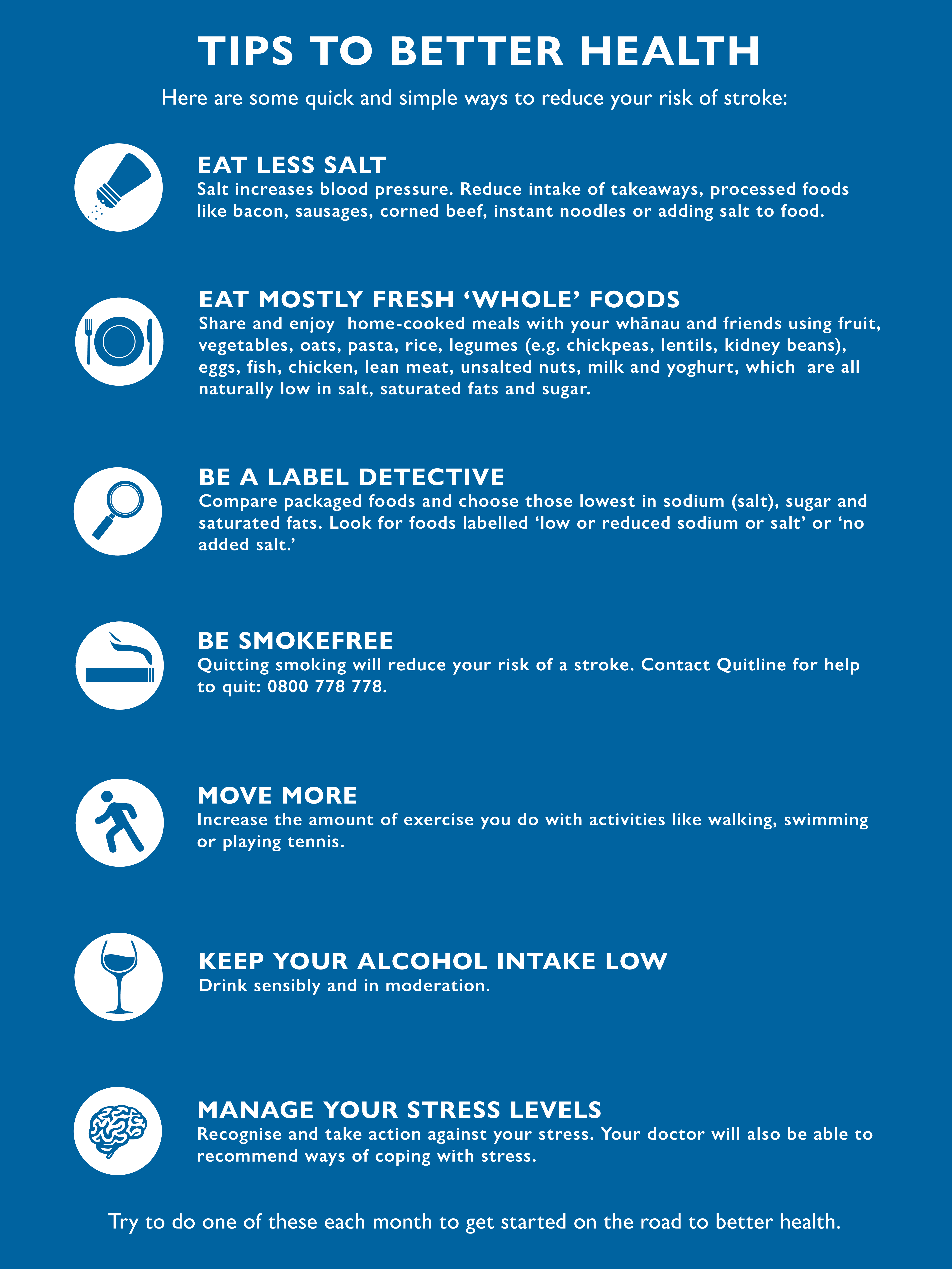TIAs
______________________
Although the signs do not last long, a TIA (also known as a warning stroke, or mini-stroke) is very serious. It means there is a problem linked with a high risk of stroke.
Transient Ischaemic Attacks or TIAs (warning strokes or mini-strokes)
A TIA is the same as a stroke, except that the signs last for a short amount of time and no longer than 24 hours.
Although the signs do not last long, a TIA is very serious. It means there is a problem linked with a high risk of stroke. More than one in 12 people will have a stroke within a week after a TIA.
Because of this, a TIA is often called a warning stroke or mini-stroke. It shouldn’t be ignored.
Cause of a TIA
In most cases TIA is caused by a blockage of blood supply to the brain. This blockage, which is temporary, is usually a clot. The clot then either dissolves or moves. After this the blood supply to the brain returns to normal and the signs disappear. TIA is not usually caused by bleeding in the brain.

Signs of a TIA
Learning the FAST message will help you see the signs of a TIA and stroke.
There is no way of knowing if the signs are TIA or stroke. If you experience any one of these signs, or see someone with these signs, call 111 immediately.
Getting help fast can reduce brain damage and give someone a better chance of recovery.

Diagnosis
A suspected TIA is a medical emergency. A person with signs should be taken to hospital immediately.
TIA diagnosis is based on:
- understanding what signs occurred
- thorough medical assessment including blood pressure, cholesterol, blood sugar tests
- results of head scans and
- other relevant examinations and tests.
Treatment
Medication can help reduce the risk of stroke and improve your health.
Medications prescribed after a TIA work in different ways. They may:
- make blood less sticky. Anti-platelet medication e.g. aspirin, clopidogrel
- prevent fatty deposits from building up. Cholesterol lowering medication e.g. simvastatin, atorvastatin
- lower blood pressure e.g. cilazapril, quinapril, others
- thin blood to prevent clotting e.g. warfarin or dabigatran.
It’s important to take your medication as prescribed by your doctor. Never stop taking it without talking to your doctor.
Risk of a stroke after a TIA
A TIA is a sign that there is a problem with the blood supply to the brain. Anyone who has had a TIA is at an increased risk of stroke. The greatest risk of having a stroke is within the first few days after a TIA. This is why it’s important to call an ambulance and seek immediate medical help if any stroke signs develop.
Specialised treatment with ‘clot busting medication’ can be given for some strokes. Act FAST because time is a crucial factor for this treatment to be considered.
Reducing your risk
Many people consider having a TIA as a ‘wake-up call’ and a sign that they need to make some changes to their lifestyle. Here are some tips to help make this change.
Check your:
- blood pressure regularly so you can take steps to reduce it if necessary
- cholesterol so it can be reduced if the levels are too high
- heart beat. An irregular heart beat called atrial fibrillation can cause stroke. Medication can treat this

Driving after a TIA
A TIA doesn’t usually have an impact on day to day activities. However a person who had a TIA shouldn't drive for at least one month, because of the risk of a stroke occurring after TIA. A doctor must give a medical clearance before you can drive again.
TIA information, advice and support
Stroke Foundation of New Zealand
0800 78 76 53 - free phone for advice and link with community stroke advisors
Healthline 24 hour telephone advice
0800 61 11 16
Other sources of information:
Stroke Association UK
www.stroke.org.uk
National Stroke Foundation Australia
www.strokefoundation.com.au
American Stroke Association USA
www.strokeassociation.org